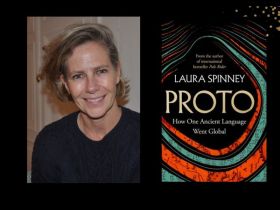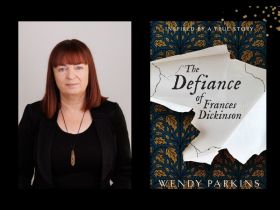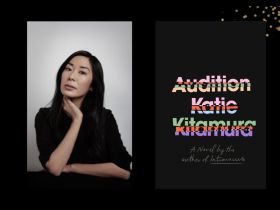I recently had a client who submitted three-quarters of her manuscript for editing. She didn’t send me the ending, because she only wanted the start of the work edited. That may sound reasonable to some, but I just had to laugh.
If she’d been in my company for more than five minutes she would have known better. I am always telling my clients that a good ending begins in the first paragraph of your book or article. This paragraph must set up the central premise of your piece. That is what keeps the reader reading. Your reader should be asking almost immediately, ‘What is going on?’ and ‘How do I solve this mystery?’ Even if your book is not a mystery. Even if it is a treatise on the habits of the three-toed sloth, it doesn’t matter. The reader always needs a reason to keep reading.
So, in this first session of Writing Bootcamp for 2008 we’re going to be looking at snagging readers with great opening paragraphs. Better known in writing circles as the ‘hook’.
This is the opening line of Daphne du Maurier’s Rebecca:
‘Last night I dreamt I went to Manderley again. It seemed to me I stood by the iron gate leading to the drive, and for a while I could not enter, for the way was barred to me. There was a padlock and a chain upon the gate. I called in my dream to the lodge-keeper, and had no answer, and peering closer through the rusted spokes of the gate I saw that the lodge was uninhabited.’*
The reader is left asking, ‘Why can’t she go in?’ ‘Why would she want to go into such a place?’ It sets up the character of the new Mrs de Winter, always struggling to get in. Always barred from what’s happening. Forever an observer, often to ruination and grief.
And so it should be with most openings. A brief glimpse at a main character. An action that sets a scene and touches on a mystery. The voice and tone of the work reaching through the pages and hooking the reader into the action.
Speaking of hooks, here is one from Herman Melville. It’s the opening paragraph of the classic, Moby Dick.
‘Call me Ishmael. Some years ago – never mind how long precisely – having little or no money in my purse, and nothing particular to interest me on shore, I thought I would sail about a little and see the watery part of the world. It is a way I have of driving off the spleen, and regulating the circulation. Whenever I find myself growing grim about the mouth; whenever it is a damp, drizzly November in my soul; whenever I find myself involuntarily pausing before coffin warehouses, and bringing up the rear of every funeral I meet; and especially whenever my hypos get such an upper hand of me, that it requires a strong moral principle to prevent me from deliberately stepping into the street, and methodically knocking people’s hats off – then, I account it high time to get to sea as soon as I can.’**
When I consumed those first few paragraphs, I felt like I had been accepted into the writer’s inner circle. I found myself inexorably drawn to this curious character. Perhaps this paragraph touched on a memory, where I was strangely inclined to ‘knocking people’s hats off’. Or even though I live in Australia, and November is warm, I could relate to the ‘damp, drizzly November’ of his soul.
In Gabriel Garcia Marquez’s One Hundred Years of Solitude, the narrator hits us with a fact that can only propel readers forward.
‘Many years later, as he faced the firing squad, Colonel Aureliano Buendia was to remember that distant afternoon when his father took him to discover ice.’***
If the firing squad doesn’t draw you in, the promise of ice’s discovery might.
In those opening paragraphs the writer hints at a secret, and that secret is revealed in the end. But if you’re clever, the writer whispers, maybe you’ll spot my clues along the way, and maybe, just maybe, you’ll work it out before the end. Won’t that be special?
You may be wondering why I’m making such a big deal about the opening paragraph of your book or article. But just think about it for a second. When you open a book what’s the first thing you do? You read the first paragraph. If it sucks you put the book back on the shelf and forget about it. Publishers do the same thing. If it takes you two or three pages to really get into the swing of your writing, then go back and write the opening paragraph after you’ve written the rest of the work. If you don’t sculpt it well, you may as well trash the rest of your efforts. They’ll all be judged on the strength of your first words.
There are a few simple concepts to keep in mind when working on an opening paragraph.
· Does it convey the general tone of your writing? For example, if you’re funny throughout the book, does this opening paragraph portray the best of your humour?
· Does it set up a mystery the reader will spend the rest of the work trying to figure out?
· Does it show something about the central character, or someone important to the work? Remember that an opening paragraph will help your readers grow attached to your main character. If that person has a central flaw that leads to their downfall you may want to hint at this here too.
· Does the opening paragraph set up the main point of view which the reader will connect with throughout the work? One book I worked on started with ‘the bad guys’. This was a problem, because I became attached to them, rather than the good guy who was introduced later.
· Does it show and not tell? If you’re telling me your central character is sad, happy or depressed, or anything else using straight exposition, instead of showing me, consider re-phrasing or thinking up a scenario in which this emotion comes through. For example, when Ishmael is sad he doesn’t say ‘I’m sad’. He tells us of the ‘damp, drizzly November’ of his soul.
· Does it introduce a main theme?
These are just a few basic ideas about opening paragraphs. They’re not exhaustive, and I’m sure you can come up with a few more. Of course the best writers can break almost all of the above rules. But most of us can’t claim to be Herman Melville just yet. So we may have to stick to a few rules, before we learn how to break them.
I just stepped away from my computer for a second. I was going to go and collect my favourite ten books and reproduce their opening lines for you. Instead I got sucked in. Well and truly. This article, which was meant to take two hours, has just bloomed out to three or four (if you count the reading time in between). Four hours later I have managed to illustrate my point well (at least to myself if not you!). An opening paragraph should hook you in. So hard and so fast that you don’t know what hit you. Hours later you look up from your book dazed and confused. Now what was I meant to be doing? Oh shit. Writing an article for Arts Hub. Damn.
Homework
For this Writing Bootcamp session I’d like you to share your favourite opening lines. Let us know why you liked them. Please post your homework to the bootcamp blog.
Jessica Perini
perini.jessica@gmail.com
www.bookster.com.au
* Twentieth Century Classics, London, 1970, p 5.
** Wordsworth, Hertfordshire, 1992, p 1.
*** Picador, London, 1970, p 9.




